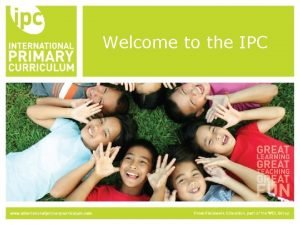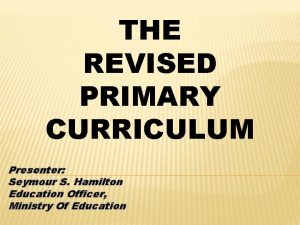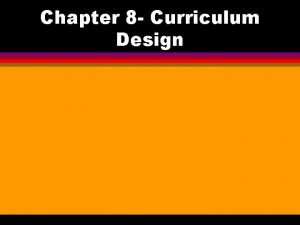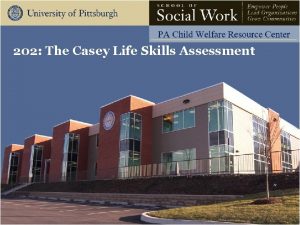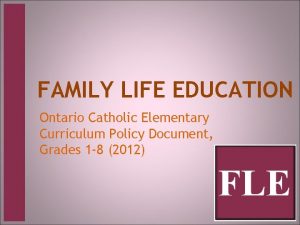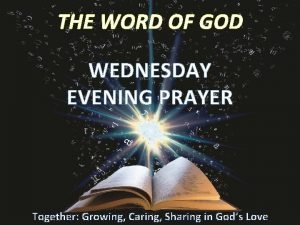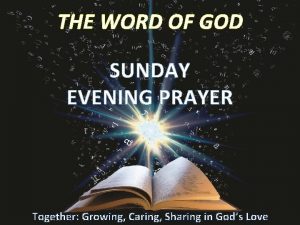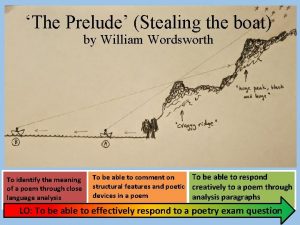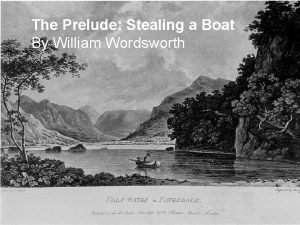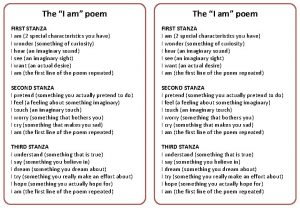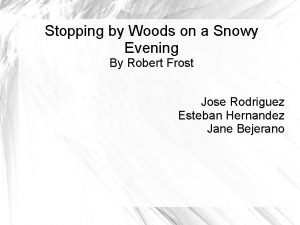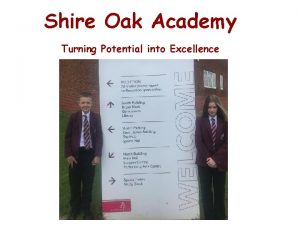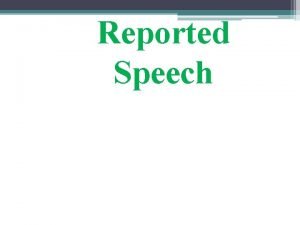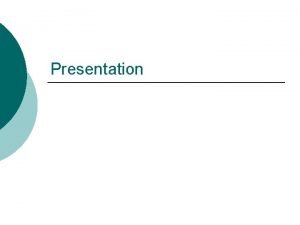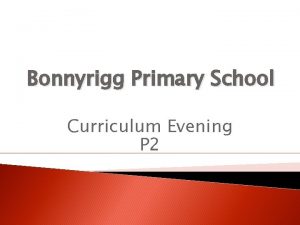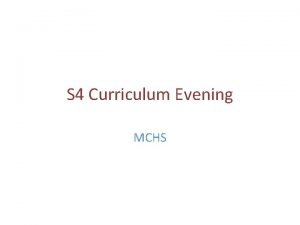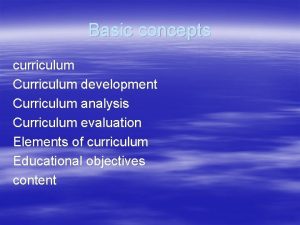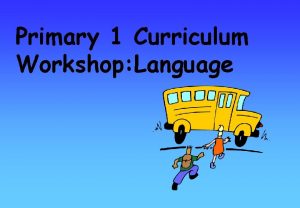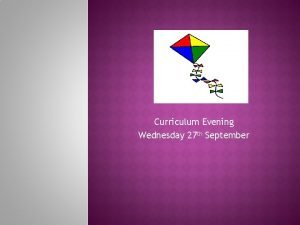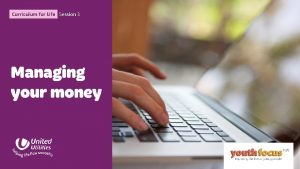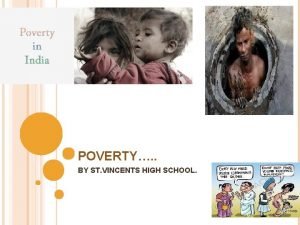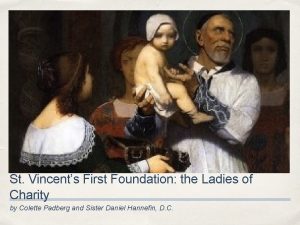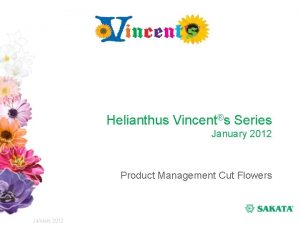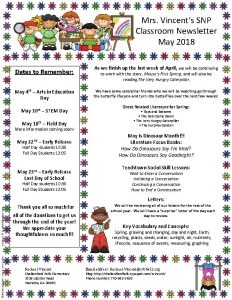St Vincents Primary Curriculum Evening Primary 1 Life



















- Slides: 19

St. Vincent’s Primary Curriculum Evening Primary 1

Life at School • Encourage independence when possible – good problem solving • Lunch menu – Please try to let them know each day. • Label everything • Try to give your child a healthy snack

Life at School • Keep what your child is carrying to school to a minimum. • Return homework wallets every Friday. • Our gyms days are Monday & Tuesday. Please always remember gym kits. (polo shirt/short/joggies) • Show & Tell (Theme for the week will be posted on Twitter page)

Homework • On Room 2 website page • Placemats – Literacy, Numeracy, Health & Well Being • Placemats should last 4/6 weeks (We will let you know) • Education City (logins will be given out soon)

Homework after September weekend Tasks from placemats: • Sounds (2 sounds each week) • Common words (3 words each week) • 1 Health and Wellbeing Task • 1 Numeracy Task

Health & Well Being Placemat until September weekend Try to choose 1 activity per week to focus on and feel free to tick them off as you go. Get myself dressed every morning. Eat at least 1 piece of fruit every day. Do something active Drink water every day. Wash my hands In school remember with soap after to put my name on going to the correct lunch mat. toilet. Tidy my room. Help someone.

Maths Homework Placemat until September Weekend Sort the Match up Find 5 objects Can you find? cutlery at pairs of socks. at home which 1 toothbrush home into are circles. 2 spoons different sets. 3 pegs 4 socks 5 books Find a pattern Make a Find 5 objects Find numbers in your house, pattern using at home which in your house. e. g wallpaper, forks and are square. bricks etc. spoons.

Literacy Homework Placemat until September - October Have lots of fun clapping out Practise writing your full Find a cosy place and snuggle the syllables in words. name using Rainbow writing. up with an adult. Ask them to read you a story that you Challenge: What’s the longest word you can find A different colour for each and how many claps does it have? have never heard before. phoneme. E. g. Charlotte Learn a new rhyme and remember to tell your teacher about it so you can present it to your friends in class. Go to your local library (join if you have not already) and have fun picking some books to borrow. Find some bubble wrap and have fun bursting it but remember only to use your pointing finger and your thumb. This will help them get stronger to help your write beautifully! Mums and Dads: Ask your child to dictate a story to you. It could be about special outings or activities. You write down whatever they say and encourage them to draw a picture of their story. Multisensory Activity: Spread a little shaving foam on a table. Using your pointing finger practise writing curly ‘c’ letters: a, c, d, o. Find three objects in your house that begin with the same phoneme as your name. These letters that all start the same way. Remember don’t use too much foam! Challenge: Find another 3 objects that begin with the same phoneme as your friends name.

Literacy Phonics • 2 sounds per week • LETTER NAME – like we say when we recite alphabet A, B, C… • LETTER SOUND – a, b, c (like we say when we are saying a word beginning with that letter) Concentrate on the sound. “What words can you think of that begin with the sound…. . ” • Blending – word maker

Word Maker (1) a t s p n Can you make…. ? i at, sit, sat, pin, pan, nip, pit, sin, sip, tap, tip,

Term 1 Mid Sept-Dec Initial sounds Common words Term 2 Jan-March Initial Sounds Common Words y z your by only q(u) x are dad not Week 1 3/9 a t a at the Week 1 7/1 Week 2 10/9 s i I in it Week 2 14/1 Week 3 17/9 p n an is and Week 3 21/1 Week 4 24/9 Week 5 1/10 Week 4 28/1 consolidation r m am me my Week 6 8/10 d e Week 7 22/10 c k ck Week 8 29/10 did as he can we into g l Week 10 12/11 f o Week 11 19/11 b u Week 12 26/11 go got get if for on be but you Consolidation Week 13 3/12 h w was went his Week 14 10/12 j v have just to Week 15 17/12 Week 6 11/2 Week 7 18/2 Week 8 25/2 consolidation Week 9 5/11 Week 5 4/2 Week 9 4/3 Week 10 11/3 Week 11 18/3 Week 12 25/3 Consolidation Stage 1 Assessment A sh (revise a, t, s i) she come from with us so Consolidation ch (revise d, e, c, k) much of or Initial Blends Common words Week 1 15/4 ee had see has Week 2 22/4 oo play no look Week 3 29/4 ck made, like, make Consolidation Week 4 6/5 Week 5 13/5 Consolidation Week 6 20/5 Stage 1 Assessment B Week 7 27/5 ai Said big could Week 8 3/6 oy Our down off old do going Week 9 10/6 oa him all came out now new Week 10 17/6 ng (revise g, l, f, o) Consolidation wh (revise b, u, h, w, j) Ph (revise v, y, z, q, x) Term 3 April – June one first little Week 11 25/6 here her before Consolidation Stage 1 Assessment C Consolidation consolidation October – Christmas Phonological Awareness Levels 5 & 6 January – Easter Phonological Awareness Levels 7 & 8 Easter – June Phonological Awareness Level 9

Literacy • Help your child to recognise the sounds and common words they have learned out in the world for example, shop names, books, newspapers etc.

Literacy Reading • Look at the front cover. What can you see? • What could this story be about? • Point point turning the pages one at a time. • Point out you are reading the words from left to right. • Point to capital letter at the beginning and full stop at the ending making a HEALTHY SENTENCE. • Talk about characters and setting in reading books and other books. Ask questions e. g. What is happening in the story? What do you think would happen if? . .

Literacy • Expose them to different types of text e. g. books, join the library, magazines, First News (newspaper for children), Non-Fiction etc.

Maths August- December • Data Analysis (charts, menu, daily timetable) • Sorting and Matching • Numbers to 0 - 10 (Count, write, make, order, ordinal) • Shape (2 D & 3 D) • Position, direction and movement • Addition within 10 (language, counting on) • Estimating & Rounding • Subtraction within 10 (Language, counting back)

Adventure Ted • He will come home every week with his suitcase and diary. • Children are encouraged to take care of him and his belongings e. g. brush his hair. • Take pictures with your child and Adventure Ted together. It doesn’t need to be exotic or exciting, it can be something simple like sitting at the dinner table, reading a book etc • Encourage your child to tell you what they have done with Adventure Ted, in their own words, as you write in his diary and include a picture. • Help your child to pack Adventure Ted’s suitcase at the end of his stay by checking off his list of belongings.

Play • Encouraging the children to take responsibility for their learning. • A mixture of free play and structured play. • Promotes independence and choice with the children. • Children are motivated in their learning because they are actively involved in the decision making. • Children are able to choose where and how they work e. g. standing etc. • They are leading their learning and we are able to focus on their own interests rather it being prescriptive.

Useful Websites www. doorwayonline. org. uk www. spellingcity. com www. topmarks. co. uk www. bbc. co. uk/schools/ks 1 bitesize www. educationcity. co. uk www. magickeys. com/books/ www. abcteach. com

Other Info… • If your child would like to bring a cushion fro our relaxing time, I can keep them in the class.
 Snugbug homes
Snugbug homes Knowledge harvest ipc
Knowledge harvest ipc Revised primary curriculum grade 1-3
Revised primary curriculum grade 1-3 Primary care practice facilitation curriculum
Primary care practice facilitation curriculum Arrangement of the elements of curriculum is known as
Arrangement of the elements of curriculum is known as Casey life skills curriculum
Casey life skills curriculum Family life curriculum ontario
Family life curriculum ontario Those evening bells
Those evening bells Wednesday evening prayer
Wednesday evening prayer Tuesday night prayer images
Tuesday night prayer images Sunday evening prayer
Sunday evening prayer Sunday evening prayers
Sunday evening prayers Boat stealing poem analysis
Boat stealing poem analysis The prelude analysis
The prelude analysis Imaginary feelings i am poem
Imaginary feelings i am poem Shadows are _______ in the evening than they are at midday.
Shadows are _______ in the evening than they are at midday. Rhyme scheme of stopping by woods on a snowy evening
Rhyme scheme of stopping by woods on a snowy evening Shire oak academy uniform
Shire oak academy uniform Yesterday evening reported speech
Yesterday evening reported speech Assalamualaikum & good morning
Assalamualaikum & good morning

